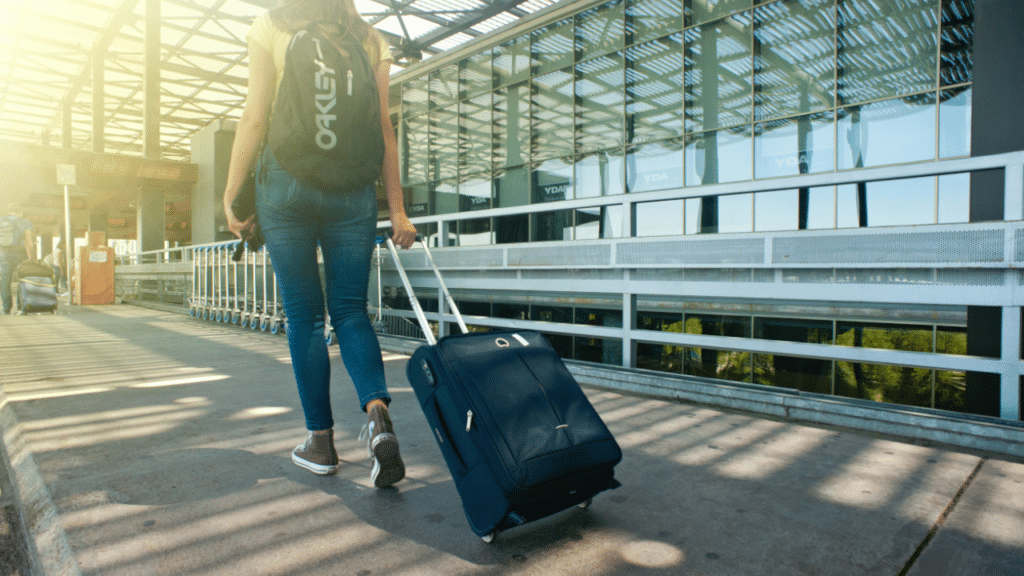Summer holidays are fast approaching and many of us are eagerly planning our vacations, but SnapDragon Monitoring want to make sure that everyone is doing so in a safe and secure way.
Whether it’s a long-awaited reunion with loved ones, a leisurely exploration of a new destination, or simply an adventure in the making, booking a holiday is an exciting time for everyone. However, amidst the excitement, it’s also crucial to be aware of common scams that can quickly take the fun out of the holiday season.
In the last few years, holiday-related scams have soared. According to Action Fraud, between 2021 – 2022 there was a 120% increase in holiday scams with victims collectively losing over £7.4 million to criminals. This highlights the growing threat holiday scams can pose to consumers and the need to be cautious when booking holidays online.
So, to help consumers navigate the process securely, and ensure they’re booking genuine plane tickets and holidays, below is some advice from SnapDragon Monitoring to help keep them safe:
What’s an airline or holiday scam?
When criminals engage in airline and holiday scams, their primary goal is to achieve financial gain. They may accomplish this by either directly stealing victims’ money or collecting their personal information for identity theft or sale on the dark web.
What are the types of holiday and airline scams to be aware of?
Airline and holiday scams primarily target travellers seeking great deals through fake websites, deceptive advertisements and phishing attacks. Here are some common types of scams to watch out for:
1. Illegitimate Travel Agencies: Scammers will promote fake travel agencies via social media, email or phone calls to trick consumers into providing personal information and banking details.
Typically promoting last minute options at knockdown rates, they aim to entice consumers into impulse buys. Remember, all legitimate package trips booked in the UK should be ATOL protected. If there’s no mention of this anywhere on the site or booking details, this could be a sign it’s a scam.
2. Fake Booking Websites: Scammers may create fraudulent websites which closely resemble legitimate airline or travel agency sites, offering substantial ticket discounts.
They may even send confirmation emails that appear authentic. However, in reality, there is no flight or holiday. Instead, scammers aim to steal sensitive information such as payment details, personal data, phone numbers, and addresses and then use it for further fraud or to sell it on.
3. Unexpected Extra Costs: If an agency or airline unexpectedly requests additional payment to finalise your booking, be cautious. Scammers often claim that ticket prices have increased, or other fees are required.
4. Fraudulent Social Media Giveaways: Scammers entice users with attractive images and promises of free or discounted vacations through social media giveaways.
Once users take the bait, they find themselves faced with numerous fees, realising that the offer was neither free nor legitimate and that their personal information was stolen by criminals.
5. Bogus Flight Cancellation Emails: Scammers send emails claiming that a recently booked flight has been cancelled and needs to be rebooked for a fee. In reality, the flight is not cancelled, and the “fee” goes straight into the scammer’s pocket.
6. Last-Minute Deals: Exercise caution when encountering unbelievably low last-minute deals. Fraudsters exploit stolen financial information to purchase airline tickets, which they then sell at significant discounts through fake travel agencies, Facebook marketplaces, or fraudulent airline websites.
These scams typically involve requests for payment in cash, bank transfers, or cryptocurrencies, all of which are difficult or impossible to reverse. Even if the tickets are voided, the scammer keeps your money.
To avoid getting caught out, remember this: if it’s too good to be true it probably is. By using legitimate websites, booking with caution and keeping your guard up, you can enjoy your well-earned break safely and in peace.



